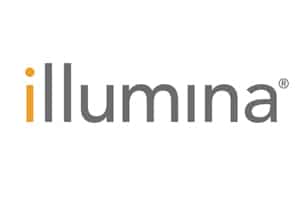
The Competition and Markets Authority (CMA) has raised concerns that the merger of Illumina and Pacific Biosciences of California (PacBio) will lead to a loss of innovation in the DNA sequencing market.
The San Diego-based biotech is one of the leading companies working in genetics, and is a global supplier of next-generation DNA sequencing systems to a number of leading organisations around the world.
One of these includes Genomics England, with Illumina providing the genome sequencing systems for the 100,000 Genome Project. The  DNA-sequencing systems it provides are crucial for projects such as this, which aim to research genetic diseases and aid faster drug development.
DNA-sequencing systems it provides are crucial for projects such as this, which aim to research genetic diseases and aid faster drug development.
According to the CMA, Illumina holds around 80% of the global market share in this area, and 90% in the UK. It has provisionally concluded that the merger between Illumina and PacBio will cause a loss of competition between the two companies, and lead to fewer alternative options of DNA sequencing systems.
Illumina announced its plans to acquire PacBio in No vember last year, for $1.2bn in an all-cash transaction.
vember last year, for $1.2bn in an all-cash transaction.
The CMA is concerned that because DNA sequencing is a highly concentrated industry, that the deal between the two could lead to a reduction in the overall levels of innovation in the market.
The investigation also found that PacBio is one of Illumina’s closest competitors, and that internal documents from the companies have previously referred to each other as competitive threats.
This is consistent with the views of customers and the remaining competitors in the market.
“DNA sequencing is a highly concentrated industry and given the strength of Illumina in this market, and the limited number of alternative providers, the removal of an innovative competitor like PacBio is likely to have a significant impact on competition,” said Stuart McIntosh, the inquiry chair.
“This could harm critically important innovation in the systems created to support DNA sequencing and lead to less choice, higher prices or lower quality as a result of the merger,” he added.
Following the CMA’s provisional findings, it has invited comments on possible remedies by 7 November 2019. However, it has already suggested that there is no reasonable remedy to its concerns.
Illumina had originally planned to close the transaction in mid-2019, but this was stalled by the CMA’s investigation, which began in April. It now looks increasingly unlikely that it will be able to close the deal anytime soon.




